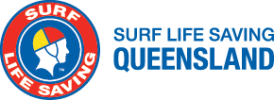In line with Surf Life Saving Queensland’s strategic direction, it is an absolute priority for all surf lifesaving personnel to fully appreciate the magnitude of their responses to media enquiries. An appropriate chain of communication has been established to deal with issues as they arise through SLSQ’s Media Team. When required, regional coordinators and their associated teams will be made fully aware of any issues that may impact on the organisation. The media protocols provide appropriate responses and a chain of command.
While general guidelines for media activity have been set out below in order for clubs and branches to continually enhance the reputation of our valuable community service, there are a number of important guidelines that dictate when and where it is appropriate for any representative of Surf Life Saving Queensland to provide comment to the media.
As a guiding principle, all surf lifesavers should be aware that there is never an obligation to speak to the media and there are certain protocols relative to any dealings with the media that need to be followed. These protocols are listed below. *Always remember that any comment made by an individual surf lifesaver in uniform can be assumed as the overall position of SLSQ. Never say anything to a journalist or media representative that you wouldn’t want to be reported. *
Some of the guiding principles which should use as a checklist when dealing with the media include:
- *Only comment on issues that specifically relate to surf lifesaving. * As representatives of SLSQ, individuals should always be mindful that there will continue to be underlying issues relative to the beach, and because of our strong association with it, we will nearly always be asked for comment. The main priority for surf lifesavers remains – our commitment to the safety of beachgoers as we strive towards our ultimate goal of “zero preventable deaths in Queensland public waters.” If questioning is not in line with this, then we have no responsibility to comment;
- *In any circumstances where a perceived unlawful situation arises on the beach during patrols, it is only our position to monitor the situation and alert the relevant authorities (i.e. local police). * These authorities have greater powers with respect to the law, and again our priority remains to ensure beachgoers remain safe and are swimming between the red and yellow flags;
- If questions relate to anything outside normal patrol duties, please refer any media queries to your regional Lifesaving Services Coordinator or the SLSQ Media Team. We are not obliged to comment. We are clear about our safety messages such as not swimming at unpatrolled beaches or outside patrol hours.
However, at the discretion of the Lifesaving Services Coordinator or the SLSQ Media Team, it may sometimes be appropriate to give a general comment on our surf safety reminders. In almost all situations relating to beach activity, SLSQ is prepared to offer input into discussions with other agencies, with a clear directive of suggesting improvements that may assist our own capabilities in saving lives on the beach; - *Are my comments likely to impact on any other organisation or agency? * As a charity, SLSQ aligns itself closely with its corporate partners and similarly is always looking to establish close ties with fellow emergency service providers and associated Local, State and Federal Government agencies. Through association, when we make comment to media relative to the various issues we are faced with each day, surf lifesavers must ask themselves: Is there any potential ramifications for our associated bodies from what I say? SLSQ boasts harmonious relationships with many and varied partners and agencies;
- *SLSQ is an emergency service provider, a charity organisation, a community service provider, an educational institution and a high-level sporting organisation. * All these variables contribute to our overriding reputation as the peak beach safety and rescue authority. Boasting such diversity means surf lifesavers must always be mindful of how comments to the media will affect the organisation as a whole, including our own strategic partnerships with corporate and government agencies;
- *Be mindful of comments made on social media, which can also have wide-reaching impacts on the organisation. * Be aware that comments made on social media channels can also reflect back upon the organisation, and potentially even be picked up and reported by media. As a general rule of thumb, you should not post any comments online that you wouldn’t want reported and attributed to you or the organisation. It’s a good idea to familiarise yourself with SLSQ’s Social Media and Online Communication Policy, which outlines appropriate standards of online behaviour and conduct for members and staff alike
- *If in doubt contact the appropriate people. * If you have a concern or query, please relay these through to the SLSQ Media Team via SurfCom. SLSQ’s Media Team is on-call 24/7 to assist with any issues or enquiries. The SLSQ on-call Media Officer can be contacted at any time on 0419 201 246.



Post your comment on this topic.